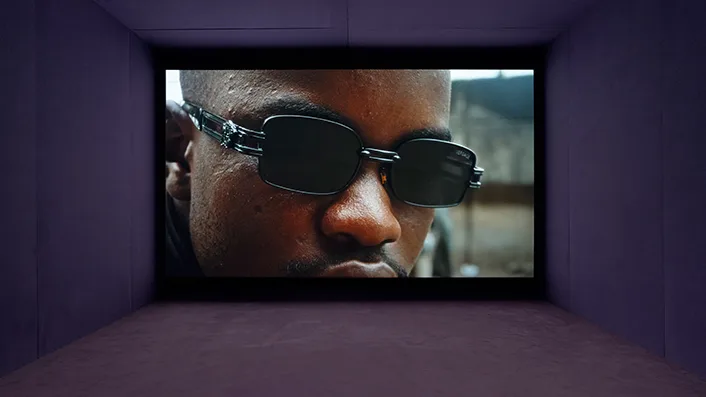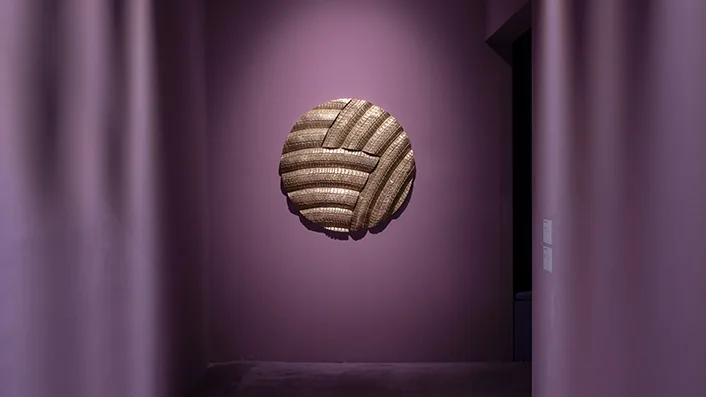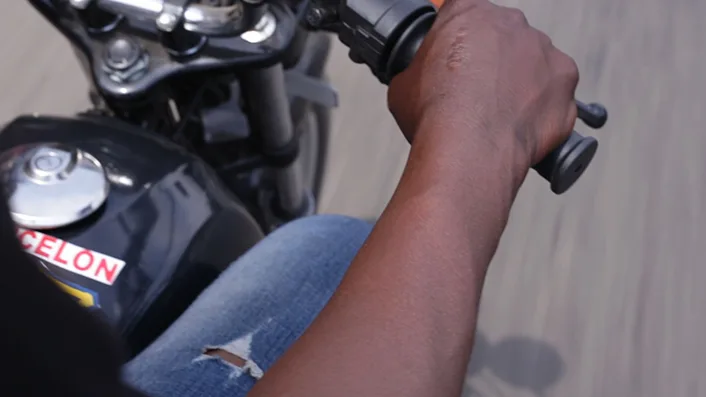Machine Boys (2024)
2024
Title:
Machine Boys
Year:
2024
Running time:
08:50 mins
Format:
HD digital film, colour with 5.1 surround sound
Single channel
Location:Lagos, Nigeria
Acknowledgements:
Director and Editor: Karimah Ashadu
Camera: Aigberadion Israel Ikhazuangbe
Sound Mixer: Joseph Eyo Edem
Colour Grader and Graphic Designer: Abdulmonim Twebti
Audio Post-Production: Jochen Jezussek
Production Coordinator: Japhet Philibus
Production Assistants: Ibrahim Babatunde Adebayo, Anthony Monday
Creative producer: Leonardo Bigazzi
Produced by Fondazione In Between Art Film
With the additional support of MOIN Filmförderung Hamburg Schleswig-Holstein
Co-producers: Golddust by Ashadu
With thanks to the bikers and crew
“Machine Boys” explores the informal economy of motorcycle taxis – colloquially known as “Okada”, in the mega-city of Lagos. Banned a few years ago due to the government’s inability to regulate the industry, the work portrays a hardy group of bikers who continue this illegal work, seeking to attain financial autonomy and independence. In Machine Boys Ashadu dwells on the consequences of this ban, meanwhile portraying the daily rituals and challenges faced by Okada riders.
They embody a particular branch of masculinity, and in this performance, a beautiful vulnerability emerges, questioning Nigeria’s patriarchal culture. Through this exploration of Nigerian patriarchal ideals, Ashadu relates its performance of masculinity to the vulnerability of a precarious class of workers.
Installed for the first time at the 60th Venice Biennale where Ashadu subsequently received the Silver Lion Prize, she projects the film in a purple room – inspired by one of the biker’s flashing headlights. “Wreath”, the brass sculpture exhibited in the space – an interwoven relief of tyres, evokes a medallion; denoting notions of commemoration and legitimacy.
Watch an Excerpt
For a full preview link, please contact studio@karimahashadu.com
Share:
Tumblr



